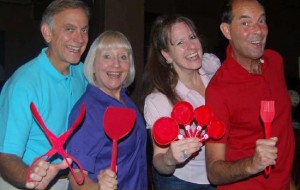
MY FAMILY, MY DOG
There is no psychiatrist in the world
Like a puppy licking your face.
Ben Williams
When Daphne sits on my lap, my blood pressure drops 30 points. Why bother with Lipitor? Daphne is not dispensed to me by a pharmacist although she is definitely good medicine. She is a five-pound Chihuahua with blue eyes and an attitude. However, when she sits on MY lap, her blood pressure elevates…and no wonder. She is at work; she is doing her job.
Daphne’s mother dresses her in high fashion: ruffled skirts with matching knickers and booties, a warm hoodie to wear when she and her mum are on the slopes and a bright strawberry vest to welcome spring.
Daphne has a stubborn anal gland that does not process her food properly and her mother has spent hundreds, nay, thousands of pounds on Daphne’s alimentary canal, to no avail. At last, her mother resorted to holistic remedies and feeds Daphne a nightly soupcon of pumpkin and rice to soothe her aching bottom.
Daphne is well aware of her privileged position in the family. She dines with us at our table. We do not consider her germs as lethal as those of her former daddy or all her cousins…some with four legs, some with only two. We all know her preferences and we do our best to keep her as happy as her presence makes us. She does not like the rain; she considers walking on the other end of a leash demeaning; she loves to watch movies and never so much as woofs lest she disturb the others watching with her. We know that Daphne is absorbing the action on the screen because she often weeps at a sad ending, and she still wails when she remembers what happened to poor Jackie Robinson.
We who know and love Daphne think she is unique but it appears that she is no different than any other dog in any other home anywhere in the world. One look at her stimulates human oxytocin, a bonding hormone that increases our trust and attachment to those close to us and makes us suspicious of strangers. The fact is that the longer Daphne stares at me, the more I love her and want to shoot that yapping little dachshund next door. This explains why we think nothing of spending half our wages on Daphne’s attire, rushing her to a doctor at the slightest hint that she is not in perfect health even as we ignore our own coughs, tummy spasms and exploding lungs. She is far more than part of our family…she is the very adhesive that keeps us together. For, although we all have spats with one another over toilet seats left up or down, toothpaste tubes squeezed wrong and dishes unwashed, we all unite in our love for Daphne. It is she who keeps us human.
Dogs are miracles with paws.
Susan Kennedy
SIDEBAR ONE:
Percy is a Corgi without a tail. He stares at me with the same intensity Jewish men look at me. You know: something is missing and he doesn’t remember how he lost it. The interesting thing is that the more Percy stares at me, the more I adore him. I cannot say the same for Jewish men.
SIDEBAR TWO:
Dorothy is a shih’ Tzu with a raging metabolism. When she sits on your lap, you can feel the heat of her tiny little body warm you right to your toes. When her blood pumps through her veins and burns her calories you will swear the house is on fire. Dorothy’s mother says she has saved 1000 pounds a year on heating bills and her only cost is dog food. That, after all, is Dorothy’s fuel and it is a lot cheaper than petrol.









